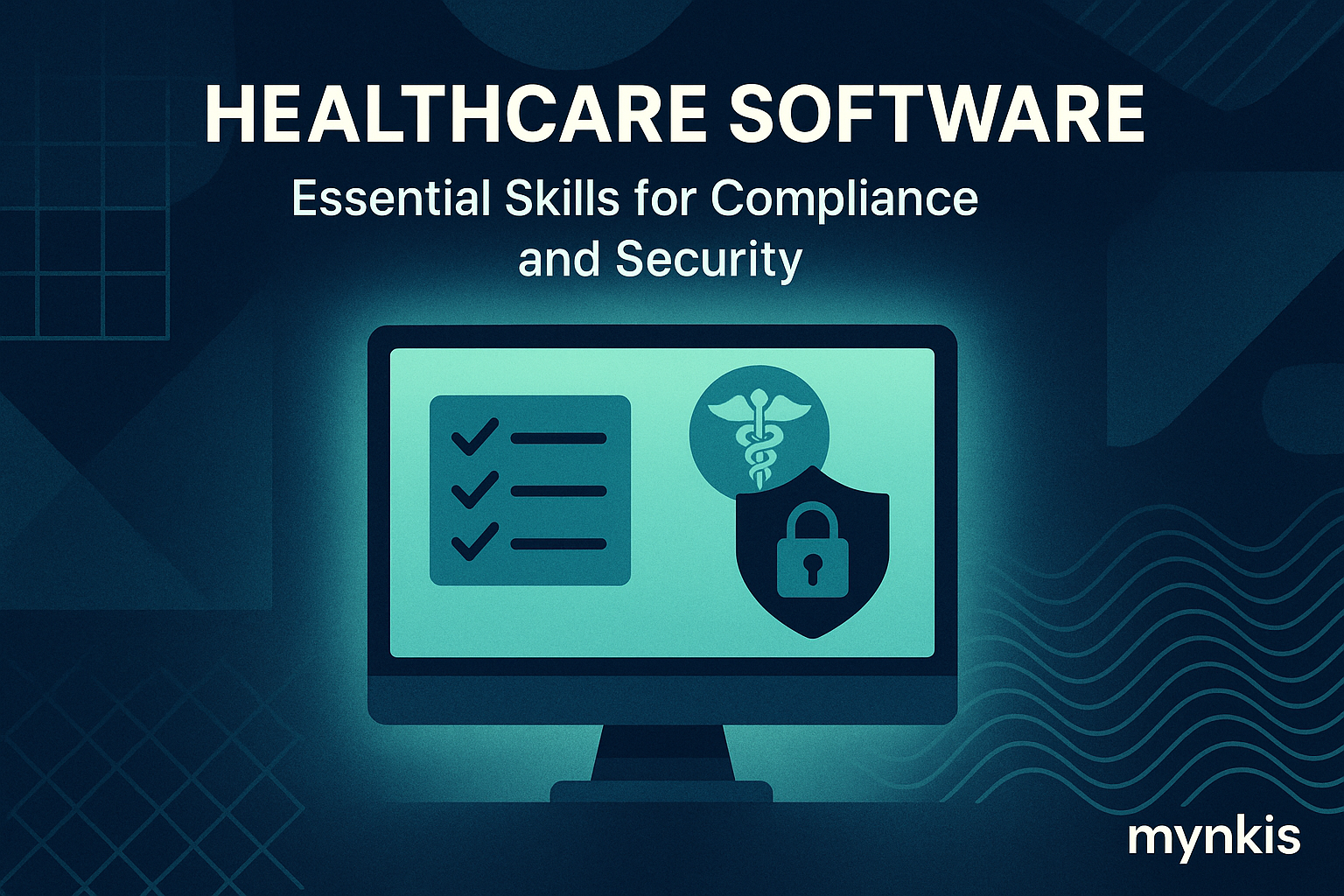Schedule a Demo
The healthcare sector demands a level of precision and security unmatched in many other industries. I've found that any software developed for clinics and hospitals must not only meet but exceed the requirements set by HIPAA, GDPR, and other regulatory bodies. In my interactions with healthcare IT departments, it's clear that non-compliance can result in severe legal consequences, which makes understanding these regulations an essential skill for developers.
Secure data management is the backbone of healthcare software. From patient portals to internal systems, each component must be designed to safeguard sensitive information. I've seen firsthand how even a minor breach can undermine trust and potentially expose patients to harm. Skills in encryption, secure coding practices, and understanding how to implement multi-factor authentication are non-negotiable. Building systems where patients' information is accessible but unassailable is crucial.
In my work with healthcare providers, I've learned that patient engagement is increasingly driven by software solutions. Skills in developing intuitive user interfaces for patient portals or mobile apps are critical. These tools must allow patients to schedule appointments, access records, and communicate securely with healthcare providers. The user experience must be seamless, encouraging patient use while maintaining the highest levels of security and compliance.
APIs are the lifelines that allow different healthcare systems to communicate effectively. In clinics and hospitals, software often needs to interface with legacy systems or third-party tools for managing everything from billing to electronic health records. My experiences have shown that proficiency in API development and integration can greatly enhance system functionality and data flow, which is indispensable in a cohesive healthcare ecosystem.
The shift to cloud-based solutions in healthcare has been both a challenge and an opportunity. From my perspective, developers must understand how to leverage cloud computing to create scalable and reliable systems. Whether it's for hosting patient data or enabling telehealth, mastering cloud services like AWS or Azure can significantly impact the performance and growth potential of healthcare software.
Staying updated with the ever-evolving regulatory environment is a critical skill for healthcare software developers. In my dealings with healthcare IT, I've realized that an understanding of standards like HL7 or FHIR is necessary for ensuring interoperability and compliance. These standards facilitate the smooth transfer and interpretation of data between different healthcare systems.
Healthcare software must be accessible and user-friendly for everyone. I've emphasized in my projects that consideration must be given to people with disabilities and those less tech-savvy. The ability to design for accessibility isn't just a legal requirement under laws like the Americans with Disabilities Act; it's also a matter of providing equitable healthcare services to all patients.
In healthcare software development, agility can be the difference between success and failure. I've seen projects accelerate and adapt when using agile methodologies. Skills in iterative development, continuous integration, and rapid deployment are crucial. These practices enable teams to respond quickly to the needs of healthcare professionals and patients alike, keeping projects on time and within budget.
Data is at the heart of modern healthcare. Skills in data analytics allow for the extraction of valuable health insights, enabling both preventive measures and personalized care. I've witnessed the power of predictive analytics in anticipating patient needs and outcomes. Developers skilled in creating systems that integrate and analyze health data can help drive more effective and efficient patient care.
Healthcare software development is rarely a solitary endeavor. From my experience, skills in collaboration and communication are vital. Developers must work closely with clinicians, administrators, and other IT professionals to understand requirements and deliver software that truly meets the needs of a healthcare facility. Effective communication bridges the gap between technical capabilities and healthcare needs.
The ethical considerations in developing healthcare software cannot be overstated. In my career, I've ensured that privacy protection is woven into the fabric of any software I contribute to. Developers need a deep understanding of the ethical implications of their work, from respecting patient confidentiality to ensuring data is used solely for healthcare purposes.
The healthcare industry is not static; it's constantly evolving. I advocate for developers who can think innovatively about how software can shape future healthcare practices. For instance, exploring new applications of AI for diagnostics or telemedicine solutions that could be deployed in the next decade. This foresight is crucial in developing software that not only solves current issues but can adapt to meet future demands.
As the technologies and regulations in healthcare evolve, so too must the developers. I continuously emphasize the need for lifelong learning. Whether it's through formal education, self-study, or attending industry conferences, staying abreast of the latest trends and technologies is a skill that maintains the relevance and effectiveness of any healthcare software developer.
The modern healthcare software developer is a multifaceted professional, integrating knowledge of regulatory compliance, security, user experience, and technical skills to create systems that drive better health outcomes. I've found that this complexity not only challenges developers but also offers them the opportunity to play a pivotal role in transforming healthcare through technology.
